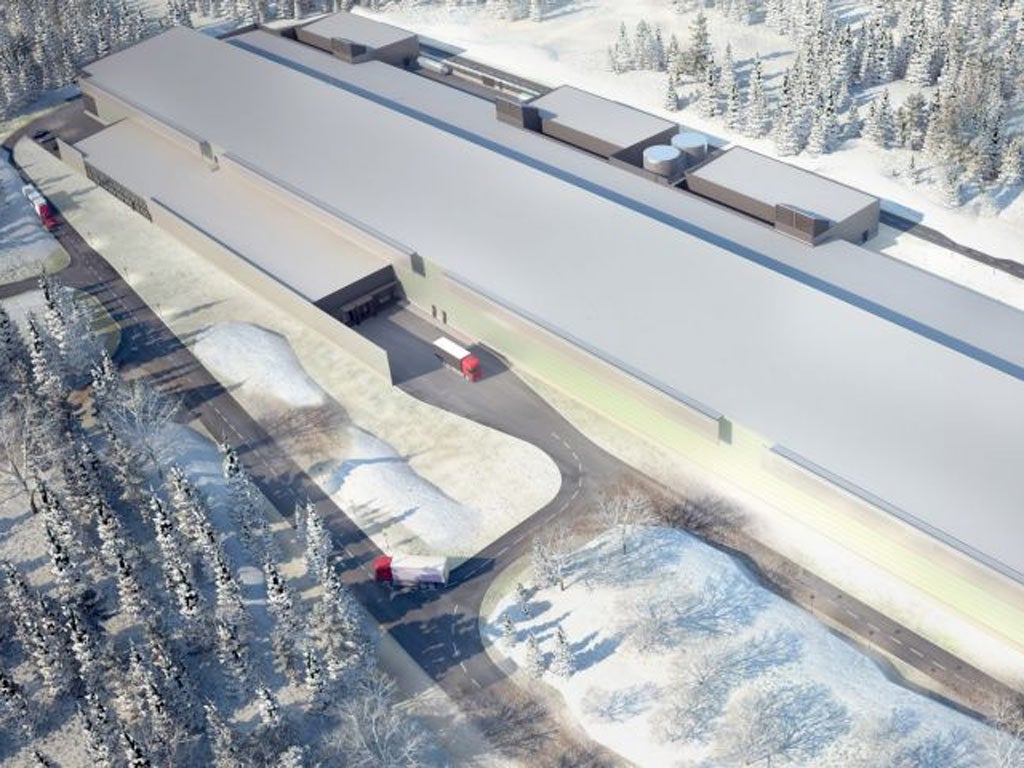Virtual world goes north in search of Arctic chill
Facebook's Swedish data centres will profit from the region's main climatic asset: the cold

It might not seem like the obvious location for a new facility to help run the world's second most popular website: a morning's drive from the Arctic Circle and 560 miles from the nearest capital city. But yesterday, following months of rumours, Facebook announced that it would be building three colossal data centres in the town of Lulea, Sweden, to cope with the relentless online activity of its 800 million users.
It will be the biggest facility of its kind in Europe (the size of 11 football fields) and construction is due to start immediately. The contract, worth some $121m (£75m), is a piffling sum of money for Facebook, but it's a big deal for the town. "This is huge," said Matz Engman, head of the Lulea Business Agency.
The reason for locating a data centre in an area that revels in sub-zero temperatures for half the year will be immediately apparent to anyone who has visited one of these increasingly essential buildings.
Racks of servers pump out an extraordinary amount of heat, and a large amount of power is needed to keep air temperatures down to around 20C; if it gets much hotter the chances of computer malfunction increase substantially. Cooling equipment accounts for some 40 per cent of the energy used in data centres, and with power consumption running at 100 times that of a standard office building, there's a constant battle to reduce that percentage.
The Arctic climate offers immediate assistance, and there's money to be saved as a result; an experiment conducted by Microsoft at its Silicon Valley facility some years ago demonstrated that tweaking a temperature gauge by as little as 2C or 3C can knock $250,000 a year off energy bills.
Lulea is no stranger to cutting-edge technology. The first ever GSM mobile phone call was made here in 1989, hundreds are employed in the IT industry, and Facebook will have been seduced by the dense fibre-optic cable network enjoyed by Swedes.
But it's the proximity to the Lule River that sealed the deal; the power consumption of the new facility is predicted to be equal to a town of 50,000 people, and hydro-electric power allows the Lulea Business Agency to boast the cheapest electricity in Europe. With Facebook making energy efficiency such a priority, it may also end up implementing the kind of scheme used by the Finnish company Academica, where water heated by its Helsinki data centre is then used to heat local homes before being piped back again to cool the servers.
As more and more economic activity shifts across to the virtual world, demand for data centres will continue to grow. British data centres already account for 2 per cent of national electricity consumption, and that figure is increasing across the world as we spend more time online: global internet use has more than doubled in the last five years, and the number of smartphones is estimated to quadruple by 2015.
Countries with cooler climates are now pitching for the resulting surge in our data-housing requirements. The move by Facebook to open this most northerly of data centres may begin to establish Scandinavia as the world's foremost data hub. The Lulea facility is estimated to be completed in 2014.
Join our commenting forum
Join thought-provoking conversations, follow other Independent readers and see their replies
Comments